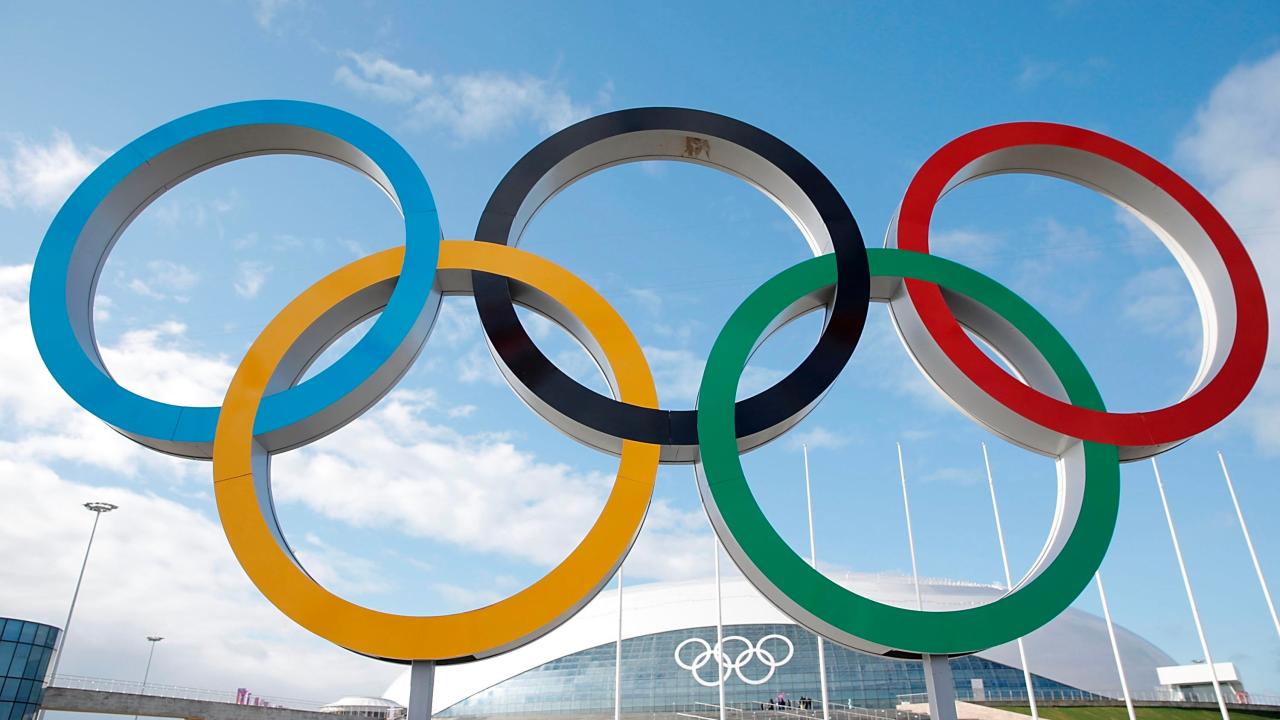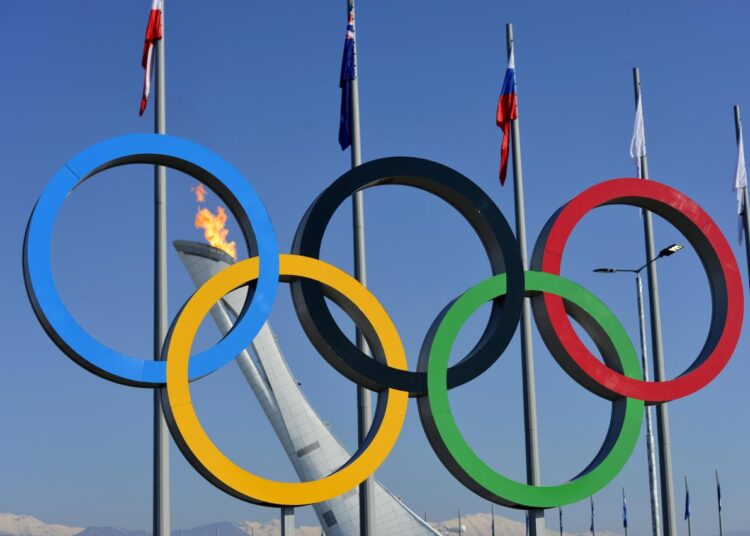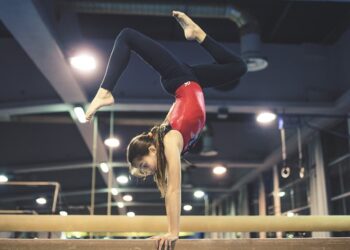The roar of the crowd, the flash of cameras, the glimmer of gold – these are the iconic images that define the Olympic Games. For many, the Olympics are synonymous with athletic prowess, the pursuit of victory, and the ultimate triumph of human endeavor. Yet, to view the Games solely through the lens of medal counts and podium finishes is to miss the profound, multifaceted impact they have on individuals, nations, and the global community. The true essence of the Olympics extends far beyond the shine of precious metals, encompassing a rich tapestry of human stories, cultural exchange, economic ripples, and a powerful message of unity and perseverance.
A Journey of Dedication and Transformation

For every Olympian, the journey to the Games is an arduous and deeply personal one. It is a testament to unwavering dedication, unimaginable sacrifice, and an unyielding passion for their sport. This odyssey begins years, often decades, before the opening ceremony, with countless hours spent in rigorous training.
A. The Dawn of Ambition: From an early age, aspiring Olympians are often drawn to their chosen discipline, fueled by a nascent talent and an insatiable desire to excel. They spend their formative years honing their skills, learning the nuances of their sport, and pushing the boundaries of their physical capabilities. This period is characterized by intense focus, disciplined routines, and a willingness to forgo many of the typical childhood experiences in pursuit of their dream.
B. The Crucible of Training: As athletes mature, their training intensifies exponentially. They commit to grueling schedules that encompass not only physical conditioning but also mental fortitude. This includes:
- Physical Prowess: Hours are dedicated to strength training, cardiovascular endurance, flexibility, and sport-specific drills. Coaches meticulously craft training regimens designed to optimize performance, minimize injury, and build peak physical condition. The sheer volume of training often borders on the extreme, demanding an extraordinary level of commitment and resilience.
- Mental Fortitude: The psychological aspect of elite sport is as crucial as the physical. Olympians develop an iron will, learning to overcome self-doubt, manage pressure, and maintain focus under the most challenging circumstances. Visualization, mindfulness, and sports psychology play a vital role in preparing them for the intense competitive environment of the Games.
- Nutritional Discipline: Every morsel of food is carefully considered to fuel their bodies optimally. Strict dietary plans, often overseen by nutritionists, ensure they receive the right balance of macronutrients and micronutrients to support their intense training and recovery.
- Sacrifice and Solitude: The path to the Olympics often involves significant personal sacrifices. Athletes may spend extended periods away from family and friends, relocate to specialized training centers, and prioritize their sport above all else. This can lead to periods of loneliness and isolation, testing their resolve and commitment.
C. Overcoming Adversity: The Olympic journey is rarely linear. Athletes face numerous setbacks, including injuries, performance plateaus, and moments of profound doubt. The ability to bounce back from these challenges, to adapt and persevere, is a hallmark of an Olympian. Their stories often highlight:
- Injury Rehabilitation: The physical demands of elite sport make injuries almost inevitable. Olympians undergo rigorous rehabilitation programs, demonstrating immense patience and determination to return to peak form.
- Mental Resilience: The pressure to perform can be immense, leading to moments of anxiety or self-doubt. Athletes learn coping mechanisms and develop mental resilience to navigate these challenges and maintain a positive mindset.
- Financial Strain: For many athletes, particularly in less commercialized sports, the financial burden of training, travel, and competition can be significant. They often rely on sponsorships, grants, or even personal savings to fund their Olympic aspirations.
D. The Moment of Truth: Standing on the Olympic stage is the culmination of years of relentless effort. Whether they achieve a medal or not, the experience itself is transformative. It is a moment of profound pride, representing the realization of a lifelong dream. The lessons learned – discipline, resilience, sportsmanship, and the pursuit of excellence – extend far beyond their athletic careers, shaping them as individuals and often inspiring others.
The Olympic Truce and Cultural Exchange
Beyond the competitive arena, the Olympic Games serve as a powerful platform for fostering international understanding and promoting peace. The ancient concept of the Olympic Truce, or Ekecheiria, is a testament to this enduring ideal.
A. The Spirit of Truce: Rooted in ancient Greek tradition, the Olympic Truce called for a cessation of hostilities during the Games, allowing athletes and spectators to travel safely to Olympia. In the modern era, the United Nations has revived this concept, passing resolutions that call for a worldwide Olympic Truce during each Games. While not always perfectly observed, it serves as a powerful symbolic gesture, reminding the world of the potential for unity and peaceful coexistence.
B. A Global Gathering: The Games bring together athletes and spectators from nearly every corner of the globe. This creates an unparalleled opportunity for cultural exchange and dialogue. Athletes share their national traditions, languages, and perspectives, breaking down barriers and fostering mutual respect.
- Athletes’ Village: The Olympic Village is a unique microcosm of the world, where athletes from diverse backgrounds live side-by-side, sharing meals, experiences, and a common passion for sport. Friendships are forged across national divides, often lasting a lifetime.
- Spectator Interaction: Fans from different countries gather, cheering for their respective teams but also often developing an appreciation for the athletic achievements of others. This shared experience can transcend political differences and foster a sense of global camaraderie.
- Cultural Showcases: Host cities often organize cultural festivals and events alongside the sporting competitions, showcasing their heritage and providing visitors with an immersive experience of their traditions, music, art, and cuisine.
C. Diplomacy Through Sport: The Olympics can also serve as an informal avenue for diplomacy, providing opportunities for leaders and officials from different nations to interact in a less formal setting. While not a substitute for formal negotiations, these interactions can help build bridges and foster understanding. The “ping-pong diplomacy” between the U.S. and China in the 1970s is a classic example of how sport can pave the way for diplomatic breakthroughs.
Economic Impact
Hosting the Olympic Games is a colossal undertaking, involving massive financial investment and infrastructure development. The economic impact is significant, but it is also a complex issue with both potential benefits and considerable risks.
A. Infrastructure Development: Host cities typically embark on ambitious infrastructure projects, including:
- Sporting Venues: Construction of new stadiums, arenas, and training facilities, or significant upgrades to existing ones. These projects often represent a substantial portion of the overall budget.
- Transportation Networks: Enhancements to public transport systems, including new roads, rail lines, and airport expansions, to accommodate the influx of visitors.
- Accommodation: Development of new hotels, guesthouses, and the Olympic Village to house athletes, officials, and tourists.
- Urban Regeneration: The Games can act as a catalyst for broader urban development, regenerating neglected areas and improving public amenities.
B. Tourism and Revenue Generation: The Olympics attract millions of tourists, leading to a surge in economic activity.
- Direct Spending: Visitors spend money on accommodation, food, transportation, souvenirs, and local attractions, injecting revenue directly into the local economy.
- Job Creation: The Games create a vast number of temporary jobs in construction, hospitality, security, logistics, and event management.
- Media Rights and Sponsorships: The International Olympic Committee (IOC) generates substantial revenue from selling broadcasting rights and corporate sponsorships, a portion of which is distributed to host cities and National Olympic Committees.
C. Long-Term Legacy and Challenges: While the immediate economic benefits can be substantial, the long-term legacy is more nuanced.
- White Elephants: A significant risk is the creation of “white elephants” – expensive venues that fall into disuse after the Games, becoming a financial burden for maintenance and upkeep. Careful planning is required to ensure venues have a viable post-Olympic purpose.
- Displacement and Gentrification: Large-scale development can sometimes lead to the displacement of local residents and gentrification, raising concerns about social equity and affordable housing.
- Debt Burden: The enormous cost of hosting can leave cities with significant debt, impacting public services and future economic development. Many past host cities have faced this challenge.
- Boosting International Profile: On the positive side, hosting the Games can significantly elevate a city’s international profile, attracting future tourism and foreign investment. This “halo effect” can lead to sustained economic benefits if managed strategically.
D. Sustainable Olympics: Increasingly, the IOC and host cities are focusing on sustainability, aiming to minimize environmental impact and maximize positive social and economic legacies. This includes reusing existing venues, prioritizing public transport, and implementing green building practices.
Role Models and Values

The Olympic Games are not merely a sporting spectacle; they are a powerful source of inspiration, particularly for younger generations. The stories of Olympians embody universal values that resonate far beyond the realm of sport.
A. The Power of Role Models: Olympians serve as tangible examples of what can be achieved through hard work, dedication, and resilience. Their stories of overcoming adversity, pursuing excellence, and demonstrating sportsmanship inspire millions to chase their own dreams, whether in sport, academics, or other fields.
- Beyond the Podium: Even those who don’t win medals can be profound inspirations. Their commitment to their craft, their grace in defeat, and their sheer determination to compete at the highest level provide invaluable lessons.
- Diversity and Inclusion: The Games showcase athletes from diverse backgrounds, cultures, and abilities, promoting messages of inclusion and breaking down stereotypes. The Paralympic Games, in particular, highlight the incredible capabilities of athletes with disabilities, challenging perceptions and inspiring widespread admiration.
B. Embodying Core Values: The Olympic Movement is founded on a set of core values that aim to promote human development and a better world.
- Excellence: Striving to be the best you can be, both in sport and in life. This value encourages continuous improvement and a commitment to pushing personal boundaries.
- Friendship: Building connections and understanding between people from different cultures and nations. The camaraderie among athletes, despite their competitive rivalry, exemplifies this value.
- Respect: Showing respect for oneself, one’s competitors, the rules of the game, and the environment. This includes fair play, ethical conduct, and a recognition of the inherent dignity of all participants.
- Courage: The bravery to face challenges, overcome fear, and push through pain and adversity. It is the courage to compete, to fail, and to try again.
- Determination: The unwavering resolve to pursue a goal despite obstacles and setbacks. It is the grit and perseverance that define an Olympian’s journey.
- Inspiration: The ability to motivate and uplift others through one’s actions and achievements. Olympians inspire not just by winning, but by how they compete and conduct themselves.
- Equality: The principle that all participants, regardless of their background, gender, or nationality, should have an equal opportunity to compete and be recognized for their efforts.
C. Promoting Healthy Lifestyles: The visibility of elite athletes and the excitement surrounding the Games can motivate individuals to engage in physical activity and adopt healthier lifestyles. Seeing athletes perform at their peak can be a powerful catalyst for personal fitness goals.
D. The Legacy of Giving Back: Many Olympians transition from competitive sport to roles where they give back to their communities, becoming coaches, mentors, or advocates for social causes. Their platforms allow them to continue inspiring and influencing positive change long after their competitive careers end.
The Future of the Olympics
The Olympic Games, like any global institution, must continually adapt to changing times and societal expectations. The future of the Olympics will likely see further evolution in several key areas.
A. Sustainability and Environmental Responsibility: With growing global awareness of climate change, future Games will increasingly prioritize environmental sustainability. This will involve:
- Eco-Friendly Venues: Designing and constructing venues with minimal environmental footprint, utilizing renewable energy, and efficient waste management systems.
- Carbon Neutrality: Striving for carbon-neutral Games through various initiatives, including offsetting emissions and promoting sustainable transportation.
- Legacy Planning: Ensuring that infrastructure development serves long-term community needs and avoids creating environmental burdens.
B. Inclusion and Diversity: The Olympic Movement will continue to champion inclusion, embracing a wider range of sports, athletes, and voices.
- Evolving Sports Program: The addition of new sports, such as skateboarding, surfing, and breakdancing, appeals to younger audiences and reflects changing global interests.
- Gender Equality: Continued efforts to achieve full gender equality in participation, representation, and media coverage.
- Athlete Welfare: Increased focus on the mental health and overall well-being of athletes, providing support systems to navigate the pressures of elite competition.
C. Technological Integration: Technology will play an even greater role in enhancing the Olympic experience for both athletes and spectators.
- Enhanced Broadcasting: Immersive viewing experiences through virtual reality, augmented reality, and personalized content streams.
- Data Analytics: Advanced data analytics for athlete performance optimization, training strategies, and injury prevention.
- Fan Engagement: Interactive platforms and social media integration to connect fans globally and foster a more engaging experience.
D. Governance and Transparency: The IOC will face continued pressure to maintain high standards of governance, transparency, and ethical conduct. Public trust is paramount, and addressing issues such as doping, corruption, and bidding integrity will remain critical.
E. Global Relevance: In an increasingly interconnected and complex world, the Olympics will need to reinforce their relevance as a beacon of unity and hope. Their ability to bring people together, celebrate human potential, and promote shared values will be more important than ever. The enduring power of sport to transcend differences and inspire collective joy will be key to their continued success.
Conclusion
The Olympic Games are far more than a quadrennial sporting event. They are a profound expression of the human spirit, a global phenomenon that transcends national boundaries and cultural divides. While the pursuit of gold medals undoubtedly fuels the competitive fire, the true legacy of the Olympics lies in the countless stories of perseverance, the friendships forged across continents, the economic stimulus, and the enduring inspiration they provide to millions worldwide. From the athlete’s unwavering dedication to the unifying power of the Olympic Truce, from the economic ripple effects to the timeless values of excellence and respect, the Games represent a powerful testament to what humanity can achieve when united by a common purpose. As the torch passes from one host city to the next, it carries with it not just the flame of competition, but the enduring hope for a more peaceful, understanding, and inspiring world. The Olympic spirit, indeed, extends far beyond gold.












